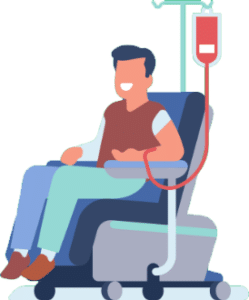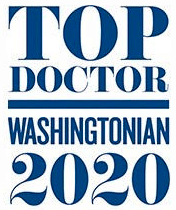The rise of ketamine and other psychedelic therapies has introduced groundbreaking possibilities for treating severe depression and PTSD. However, as these treatments gain traction, concerns have emerged about who is administering them and how they are integrated into care. While many professionals, including anesthesiologists, nurse anesthesiologists, emergency medicine physicians, and other providers may offer these treatments, psychiatrists are uniquely equipped to lead this field. Their specialized psychiatric training, comprehensive and holistic approach ensure that ketamine and psychedelics are used responsibly and effectively.
Concerns with Non-Psychiatric Clinics Administering Ketamine
1. Lack of Mental Health Expertise
Providers like anesthesiologists, CRNA’s, and emergency medicine led ketamine clinics (those offering a singular focus on ketamine) lack the in-depth psychiatric training necessary to evaluate and manage complex mental health conditions.
- Superficial Diagnoses: Without the education, experience and ability to accurately diagnose underlying conditions such as bipolar disorder, trauma-related disorders, or substance use issues, these providers risk offering ketamine inappropriately.
- Missed Red Flags: Ketamine can exacerbate symptoms of certain conditions, such as mania in bipolar disorder. Non-psychiatric providers may lack the expertise to identify these risks before administering treatment.
2. Singular Treatment Focus
Many ketamine clinics operate with a singular approach, offering ketamine as the sole treatment for severe depression, PTSD and even other diagnosis that have little evidence to suggest its benefit.
- One-Size-Fits-All Mentality: While ketamine is effective for some, it is not a universal solution and times may only be partially helpful. Patients may benefit more from transcranial magnetic stimulation (TMS), medications, psychotherapy, ketamine IV, IM, nasal or ketamine assisted psychotherapy or (and many times often) a combination of these treatments. A psychiatrist, or expert led comprehensive clinic can offer a range of options tailored to the patient’s needs.
- Risk of Overuse: Clinics offering only ketamine may be more inclined to approve patients who are not ideal candidates, potentially leading to inappropriate treatment.
3. Financial Motivations and Ethical Concerns
In ketamine-only clinics, financial incentives can create ethical dilemmas.
- Approval Bias: A clinic that exclusively offers ketamine has a financial incentive to approve patients for treatment, even when other therapies might be more appropriate.
- Lack of Transparency: Without access to alternative treatments, patients may not receive a comprehensive explanation of their options, leading to incomplete care.
4. Limited Aftercare and Integration
Ketamine and psychedelics work best when paired with ongoing psychiatric care and therapy. Many non-psychiatric clinics lack the infrastructure to provide aftercare, do not have adequate referral networks for symptoms not relieved by ketamine– leaving patients without the support they need to sustain improvements. Sadly, the patient and non psychiatrist may then determine lack of efficacy of ketamine when in fact, it might of worked but needed other treatments to augment. These augmentation strategies are common and an experienced psychiatrist will easily be able to navigate these clinical situations.
The Advantages of Psychiatrist-Led Comprehensive Clinics
1. Multimodal Treatment Options
Psychiatrists in comprehensive clinics can offer a range of evidence-based treatments, including:
- Ketamine and psychedelic therapies.
- Transcranial magnetic stimulation (TMS).
- Medication management.
- Psychotherapy including ketamine assisted psychotherapy tailored to the individual’s condition.
By having multiple tools at their disposal, psychiatrists can determine the most effective treatment or combination of treatments, ensuring patients receive individualized care.
2. Rigorous Diagnostic and Ethical Oversight
Psychiatrists are trained to evaluate the full spectrum of a patient’s mental health needs.
- Thorough Assessments: They can identify conditions such as bipolar disorder, psychosis, or unresolved trauma that may contraindicate ketamine or psychedelic use.
- Ethical Safeguards: A psychiatrist’s duty to provide ethical, evidence-based care ensures that treatments are recommended based on clinical appropriateness, not financial gain. Also, the psychiatrist has other treatments to recommend which might be another medication trial that can be far more cost effective for the patient.
3. Integration of Care
Comprehensive clinics emphasize follow-up care, such as psychotherapy and medication adjustments, to maximize and sustain the benefits of treatment.
- Collaborative Approach: Psychiatrists can coordinate with therapists, primary care physicians, and other specialists to address the broader needs of the patient. They often have vast referral networks with many subspecialties for additional needs.
- Monitoring Progress: Ongoing care ensures that patients achieve meaningful and lasting improvements, rather than temporary relief.
The Pitfalls of Singular Treatment Business Models
1. Financial Conflicts of Interest
Ketamine-only clinics could prioritize profit over patient care, approving treatment for financial gain rather than clinical necessity, primarily due to having only 1 treatment option. This practice risks undermining trust and compromising patient outcomes.
2. Missed Opportunities for Effective Treatment
Patients may receive ketamine unnecessarily when alternative treatments, such as TMS, other medications like MAOI’s, TCA’s or evidence-based psychotherapies, would be more appropriate. A psychiatrist-led clinic avoids this by offering a broader range of interventions therefore decreasing the potential of financial conflict of interest.
3. Lack of a Long-Term Plan
While ketamine can provide rapid relief, it is not a standalone solution. Without integration into a broader treatment plan, patients may relapse or fail to address the underlying causes of their mental health issues.
Conclusion
The treatment of severe depression and PTSD requires diagnostic expertise, collaboration and a holistic approach—qualities that psychiatrists are uniquely equipped to provide. While ketamine and psychedelics are powerful tools, their use must be carefully integrated into comprehensive care plans to ensure safety and effectiveness.
By choosing a psychiatrist-led clinic, patients gain access to a range of treatment options, rigorous diagnostic oversight, and ongoing support to achieve lasting recovery. This approach not only ensures the best outcomes but also avoids the ethical and practical pitfalls often seen in ketamine-only clinics.
About the Author: Dr. Navin Reddy, a Yale University School of Medicine-trained psychiatrist, is a Clinical Assistant Professor at George Washington and Howard University Hospitals. As a co-founder of Washington Interventional Psychiatry, he’s dedicated to transformative care. With expertise in complex cases, Dr. Reddy focuses on adults with challenging conditions, including hard-to-treat depression, bipolar disorder, anxiety, and substance addiction. Dr. Reddy is board-certified by the American Board of Psychiatry and Neurology.
About Washington Interventional Psychiatry (WIP):
Washington Interventional Psychiatry is located at 4325 49th Street NW, Suite 200, Washington, DC 20016. Our practice group is comprised of a dynamic team of seasoned clinicians who blend traditional medication strategies with evidence-based, rapid-acting treatments. From transformative options like Ketamine Intravenous Therapy, Esketamine Intranasal Therapy (Spravato), and Ketamine Assisted Psychotherapy (KAP) to accelerated TMS (Transcranial Magnetic Stimulation), our range of interventions is designed to complement or even replace conventional approaches. WIP isn’t just a clinic – it’s a beacon of hope for those seeking effective, rapid solutions to mental health challenges for adults and children. To learn more or to schedule a complimentary consultation, visit WIP’s website or call 202.525.5123.







